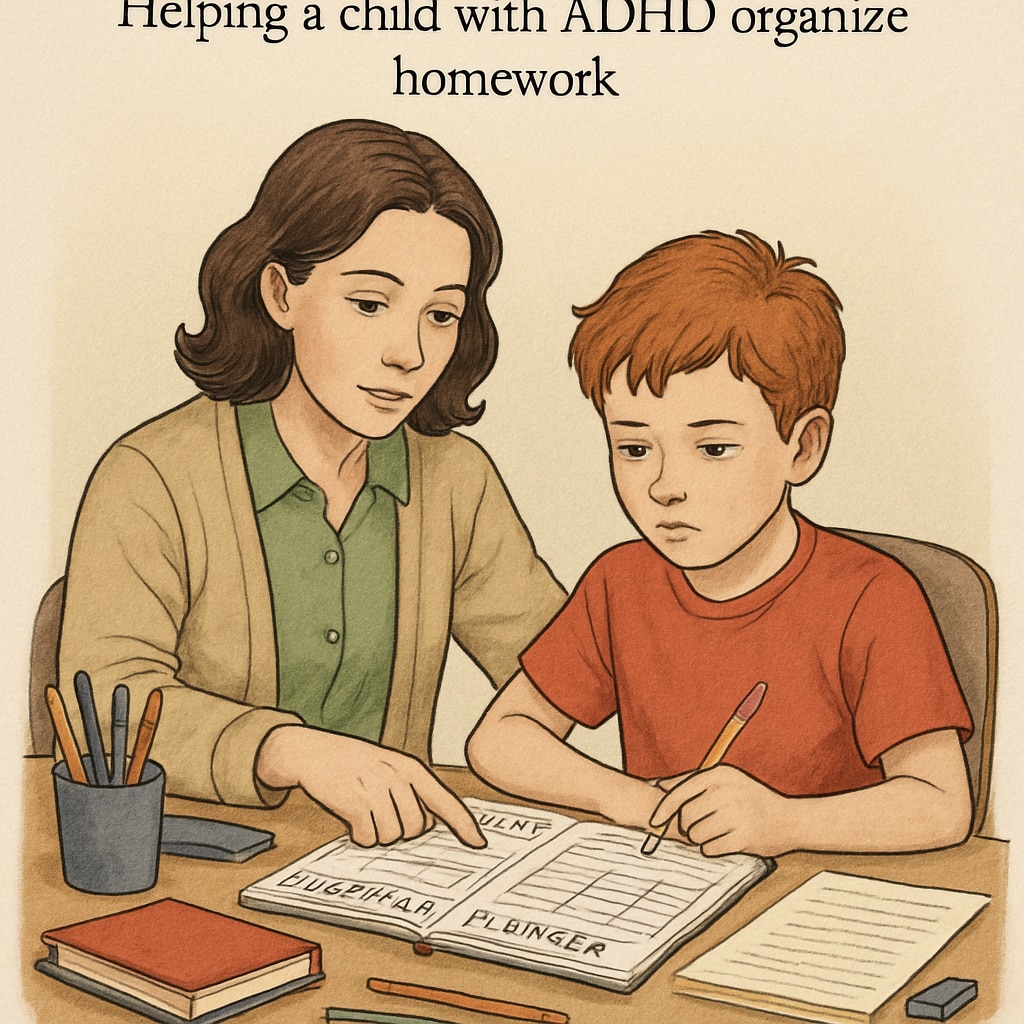Executive function, ADHD, and parental support form a crucial triad in helping special needs children navigate life’s challenges. For children with Attention Deficit Hyperactivity Disorder (ADHD) or Autism Spectrum Disorder (ASD), difficulties with executive function—skills like planning, organizing, and self-regulation—can pose significant obstacles. However, with the right strategies, parents can nurture these “invisible wings” to help their children achieve independence and self-management. This article outlines practical approaches to fostering executive function and highlights the vital role of parental involvement.
What is Executive Function, and Why Does It Matter for Special Needs Children?
Executive function refers to cognitive processes that enable individuals to manage their thoughts, behaviors, and emotions effectively. These skills include working memory, flexible thinking, and self-control. For children with ADHD or ASD, deficits in these areas may manifest as difficulty focusing, following instructions, or regulating emotions.
For example, a child with ADHD might struggle to complete homework due to poor impulse control or an inability to manage time effectively. Similarly, a child with ASD might find it challenging to adapt to changes in routine, affecting their ability to function in a structured environment. Addressing these challenges is essential for fostering academic success, emotional well-being, and independence.

Strategies for Cultivating Executive Function Skills
Developing executive function in special needs children requires consistent effort and tailored approaches. Here are some effective strategies:
- Structured Routines: Establishing clear and predictable daily schedules can help children feel secure and reduce anxiety. Use visual aids, such as charts or checklists, to make routines more accessible.
- Breaking Down Tasks: Large tasks can feel overwhelming. Divide them into smaller, manageable steps and celebrate each completed milestone to build confidence.
- Emotional Regulation Training: Teach children techniques like deep breathing or mindfulness to help them manage frustration or anxiety when tasks become challenging.
- Interest-Based Motivation: Engage children in activities that align with their interests. For instance, a child passionate about animals might enjoy creating a schedule for pet care, which fosters planning skills.
Implementing these strategies consistently can significantly enhance a child’s ability to manage their behaviors and emotions, contributing to long-term success.

The Role of Parents in Supporting Executive Function
Parental involvement is pivotal in reinforcing executive function skills. Here are some ways parents can provide effective support:
- Modeling Behavior: Demonstrate executive function skills in everyday life, such as planning meals, managing time, or staying calm under pressure.
- Providing Positive Reinforcement: Encourage and reward efforts rather than outcomes. Praise your child for trying their best and completing tasks, even if the results aren’t perfect.
- Collaborative Problem-Solving: Work with your child to identify challenges and brainstorm solutions together. This teaches problem-solving skills and fosters a sense of partnership.
- Seeking Professional Support: Engage with therapists or educators who specialize in executive function training. They can provide tailored strategies and guidance for your child’s unique needs.
By actively participating in their child’s development, parents can create a supportive environment that empowers children to overcome challenges and thrive.
In conclusion, while cultivating executive function in children with ADHD, ASD, or other special needs can be challenging, it is also deeply rewarding. Parents are vital partners in this journey, providing structured support, nurturing emotional resilience, and leveraging their child’s unique interests. With patience, consistency, and a collaborative approach, these “invisible wings” can help children soar toward independence and self-confidence.
Additional Resources
For further reading, explore the following resources:
These resources provide valuable insights into the science behind executive function and strategies for managing ADHD and ASD effectively.
Readability guidance: To maintain clarity and engagement, the article uses short paragraphs, lists, and accessible language. It balances technical accuracy with practical advice, ensuring it is informative yet easy to follow.


